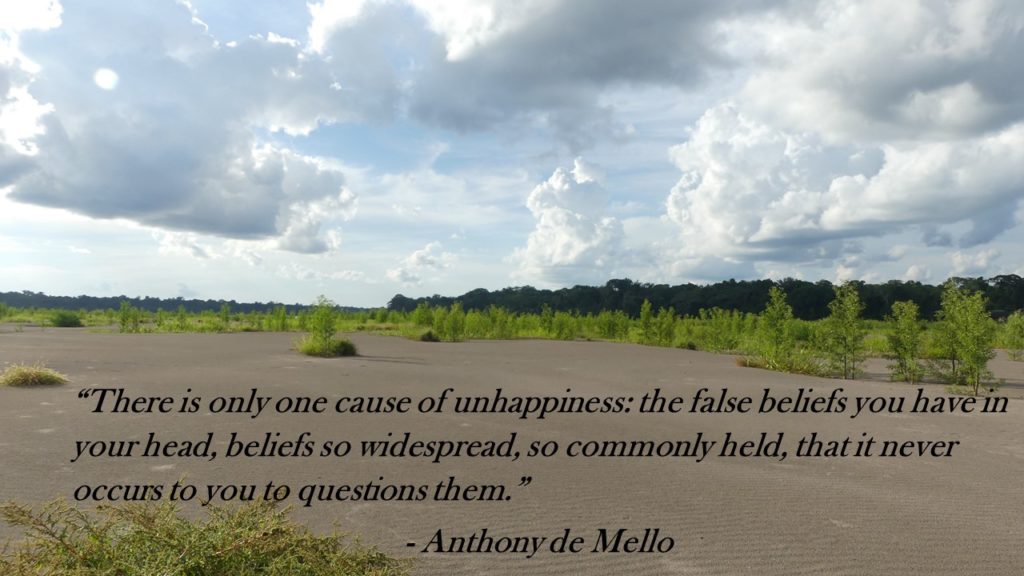 Our belief system is what underpins every decision we make and every action that we take. Beliefs are the foundation of our expectations and we developed them to help us better understand and manage ourselves, other people and the world around us.
Our belief system is what underpins every decision we make and every action that we take. Beliefs are the foundation of our expectations and we developed them to help us better understand and manage ourselves, other people and the world around us.
Here’s the thing though. Beliefs are not facts. Yes, at times a belief may align with a fact, however, more often than not, a belief will be a conclusion that we have drawn in order to make sense of something or to explain something. That doesn’t make it a fact. Often our beliefs are so ingrained in us that we can’t distinguish them from facts. We just accept them as though they are facts.
Your belief system has gotten you to where you are today. It’s also what will determine what your life will be a week from now, or a year from now or 10 years from now.
You see, we take action based on the boundaries or expectations that our beliefs provide us. They determine what we will and won’t try. Beliefs will govern the goals we set and the actions we’ll take to reach those goals. Beliefs also determine how we see ourselves, the labels we give ourselves and beliefs set up our expectations of ourselves and of others.
When we feel stuck, unfulfilled and miserable, that’s a sure sign that our belief system is out of whack with our desires.
Take someone who wants to lose weight or get fit but has no qualms in saying “I can’t get up 30 minutes earlier to exercise”. Clearly, it is possible to get up 30 minutes earlier in the day, but saying “I can’t” is a belief, not a fact. Rest assured, in their mind, the belief of “I can’t” is an accepted fact. And as a result, they stay in bed and don’t get any closer to losing weight or getting fit.
The first step in overcoming limiting beliefs is to identify them. How? Well, one clue is to look at the things you say to yourself when justifying why something isn’t working for you. For example, do you say anything like this?
- “All the good women/men are already taken.”
- “People are always out to get you.”
- “You can’t trust anyone.”
- “That’s just the way things are.”
- “Rich people are selfish.”
Of course, your statements may be completely different. But rest assured, if you are making statements such as these to justify why something isn’t working out for you, then there is sure to be a limiting belief behind it.
Let’s work through an example.
If you are someone who says that your desire is to be in a romantic relationship but at the same time you say that “All the good ones are taken”, then there is a lack of alignment between your desire and what you believe to be true. This is a pretty frustrating place to be stuck.
The next step is to challenge that statement. Ask yourself if that statement is absolutely, 100% accurate. Is every single good woman or man already taken? Every single one? No, of course not. So, we now know that the statement is no 100% true.
Step 3 is to ask yourself what you get out of maintaining that belief. Well, one thing is that it keeps you from actually being open to meeting someone. I mean really, if all the good ones are taken, then surely the ones that aren’t taken can’t be good. So, maintaining that belief keeps you from engaging with someone who may be a potential partner.
Next question: If you keep on believing that all the good ones are taken, describe how your life will be in 10 years’ time. Well, you’ll still be single. What implications does that have for you? Well, you may answer that you’ll be lonely or you’ll miss out on having the family you always wanted.
Now here’s a bigger question: What would your life be like and how would behave if, in fact, that belief was not actually true? What would your life look like and what would you be doing differently if you no longer believed that all the good women/men were already taken? Well, you might be more receptive to the next woman or man that crossed your path, right?
So at this point, you would have identified your old, limiting belief, worked out that it isn’t 100% true, acknowledged the implications it has on your future life if you continue to hold onto it, and you would have worked out that you no longer believe it to be true.
Well, it doesn’t stop there. There’s one more step. Replace the old limiting belief statement with something new. For example, “My perfect partner is waiting for me.”
Pay attention! Whenever that old belief statement starts surfacing in your mind and replace it with the new one. Remind yourself that you know that the old belief isn’t true.
When you catch yourself justifying why things aren’t working out for you, take a close look at the statements you are making and open yourself up to the possibility that they may not actually be true. Examine them. Ask yourself the questions that were used in the example above. You never know, you might just find yourself switching those old limiting beliefs that have stunted your progress, to new beliefs that drive you closer to living your true life.
